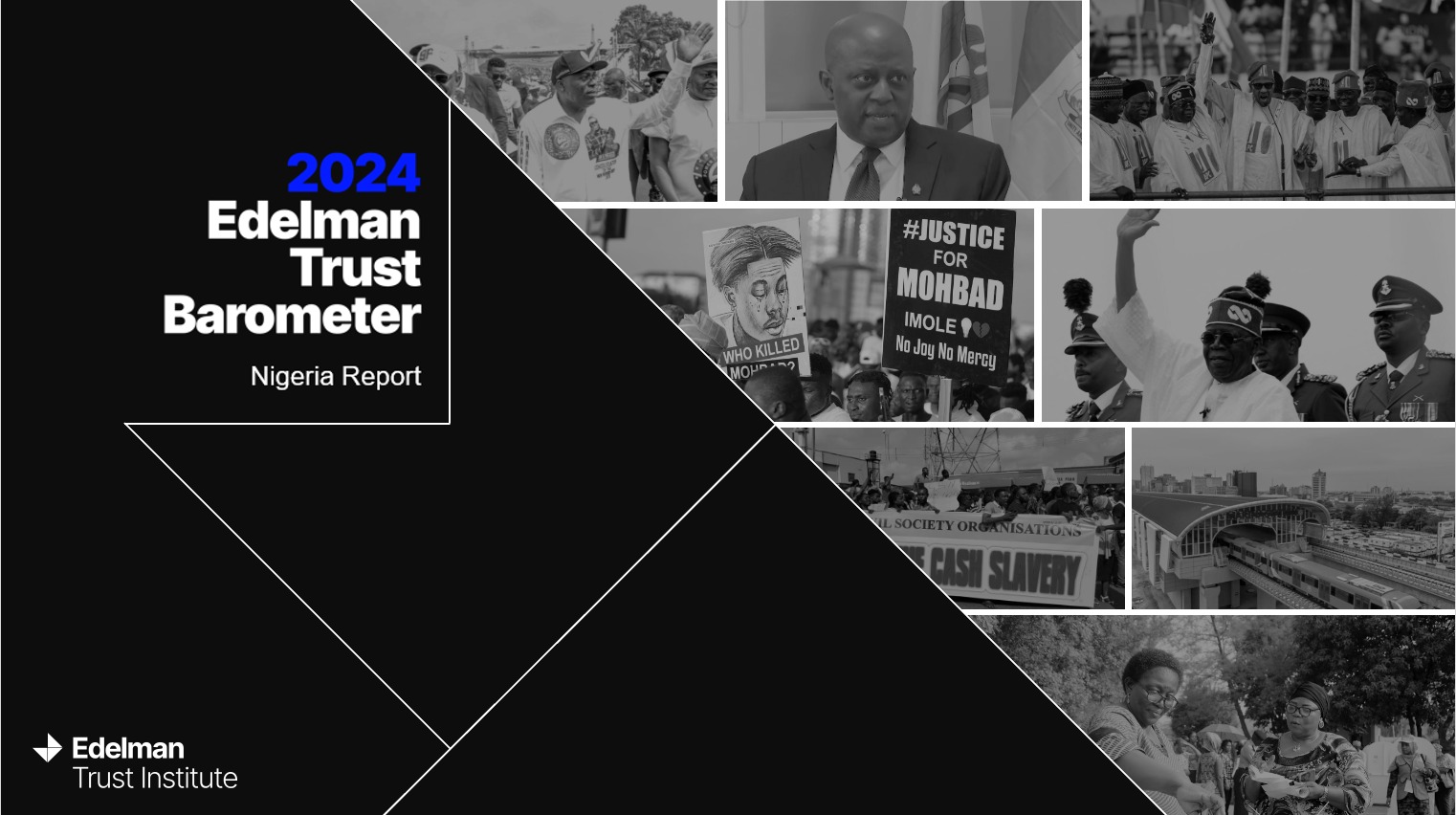In the wake of a global debate on the role of innovation in society, Nigeria is one of only four countries globally more likely to say that innovation is well managed in their country – according to the 2024 Edelman Trust Barometer.
Edelman’s global 2024 research, Innovation in Peril, posited that rapid innovation offers the promise of a new era of prosperity, but instead risks exacerbating trust issues, leading to further societal instability, and political polarisation.
The data revealed that the average of the 28 participating countries were nearly two times more likely to say innovation was poorly managed.
However, local research showed two African nations bucking the trend, along with UAE and Saudi Arabia.
- Shettima, Govs in closed door meeting over economy, Minimum wage
- 41-year-old female professor named acting VC of UniAbuja
On average, Nigeria is on par with Kenya with 35% of respondents saying that innovation was well managed, and 41% of Nigerians neutral on the issue. This belief in innovation being well-managed locally was surpassed only by Saudi Arabia at 37%.
“This year’s Trust Barometer captures a critical transformation in the trust landscape of Nigeria. Amidst economic challenges and heightened public scrutiny, there is an improved trust in all spheres of the country.
“Further, it is clear from the data that people want to feel a sense of credible authority behind how innovation is managed and rolled out to the public,” said Karena Crerar, CEO of Edelman Africa.
Nigerians’ show of trust may be a testament to their reliance on scientists as leaders in building trust in innovation within society.
The barometer shows that an overwhelming majority of Nigerians believe scientists (84%), experts (80%), and academics (80%) should play a leading role in managing the introduction of innovation.
However, the data casts a spotlight on how scientists engage with the public, as a marginal but critical 37% of Nigerian respondents say scientists do not know how to communicate with them.
“Our data shows that while scientists are still trusted within society as technical experts, to further build trust in expert recommendations there is a need to explain the research in an accessible and transparent way,” said Crerar.
Nigerians displayed exceeding levels of trust in their peers to tell them the truth about new innovations (83%), with 75% saying they also trust scientists for the same.
CEOs of businesses are increasingly expected to address the impacts of innovation, with 68% of Nigerian respondents saying they expected CEOs to manage changes occurring in society and not just in their businesses.
There is also an increasing call for a collaborative approach between business and government as innovation surges, with 77% of Nigerians saying they would trust these partnerships more in technology-led changes within society.
According to Kwame Senou, Executive Director, The Holding Opinion and Public Company, a strategic advisor of Edelman’s West and Central African Partner Network: “Nigeria shows a positive trend with a trust index of 61, reflecting a 5-point increase from the previous year.
“This signals a growing confidence in its institutions among the general population. This improvement positions Nigeria favourably among other developing nations, emphasising its potential for further societal and economic advancements.”
“Overall, the 2024 Edelman Trust Barometer for Nigeria paints a picture of a society grappling with rapid changes and the urgent need for institutional leaders – private and public – to foster a radical transformation. As does the rest of the world, Nigeria continues to navigate through these turbulent times, while striving to build and maintain trust across all sectors,” he concluded.

 Join Daily Trust WhatsApp Community For Quick Access To News and Happenings Around You.
Join Daily Trust WhatsApp Community For Quick Access To News and Happenings Around You.



